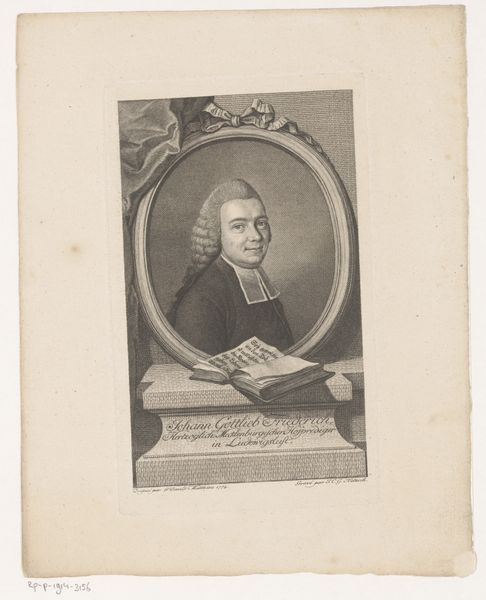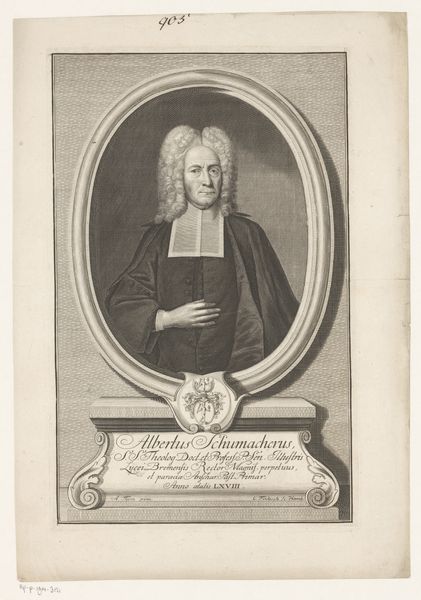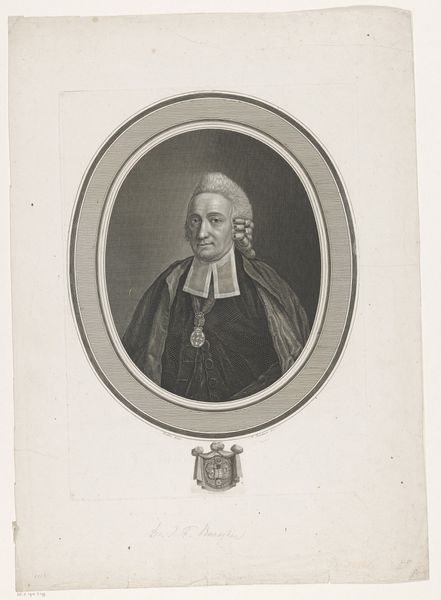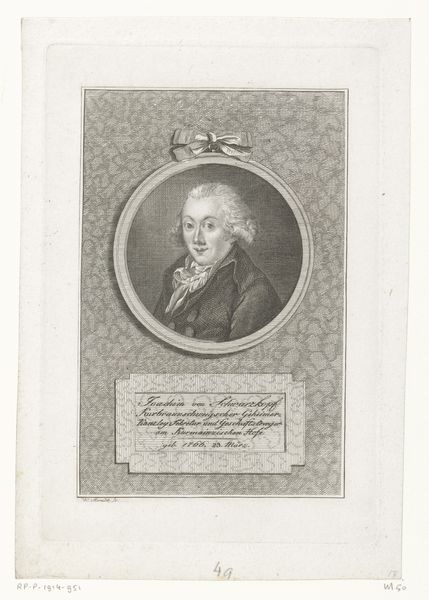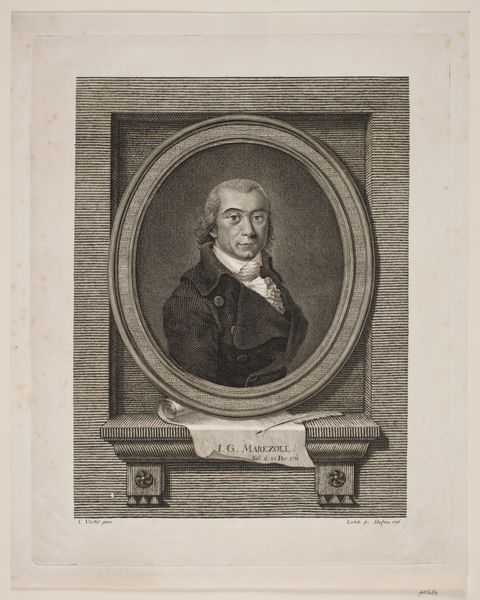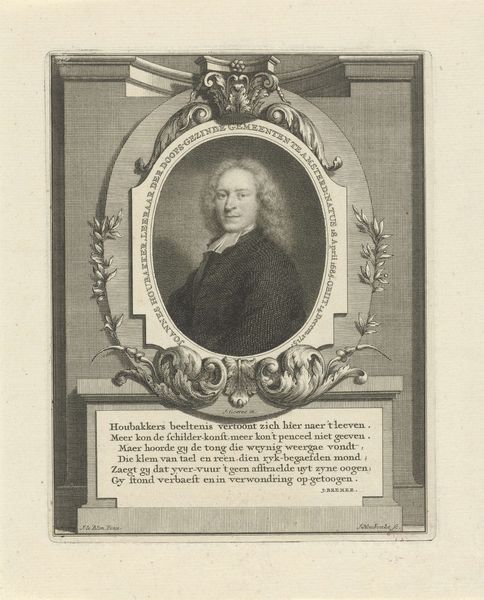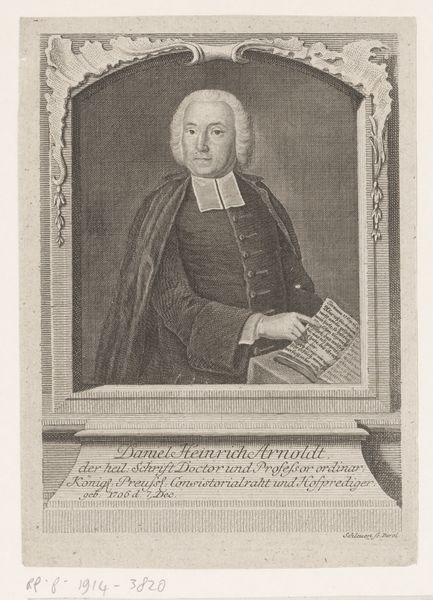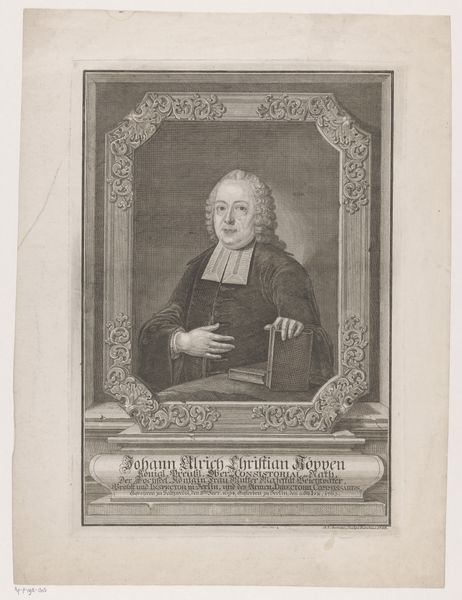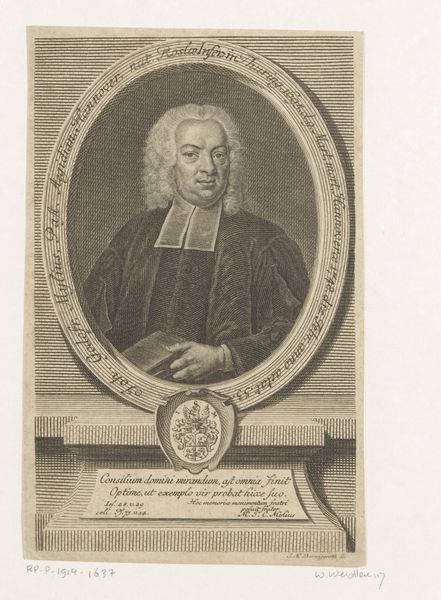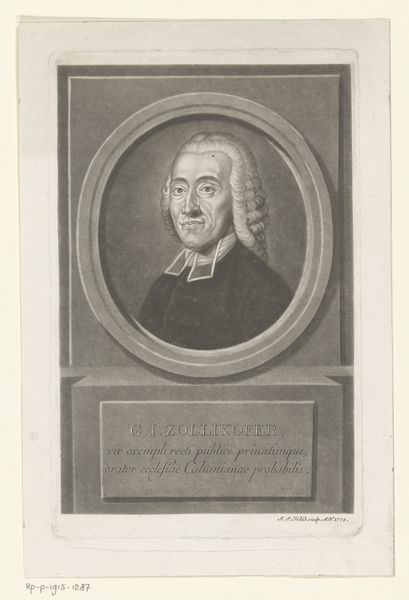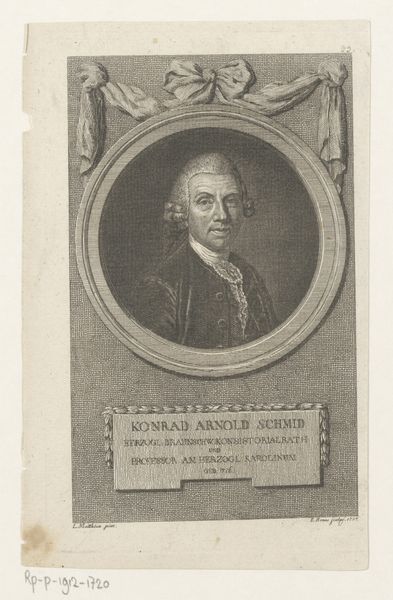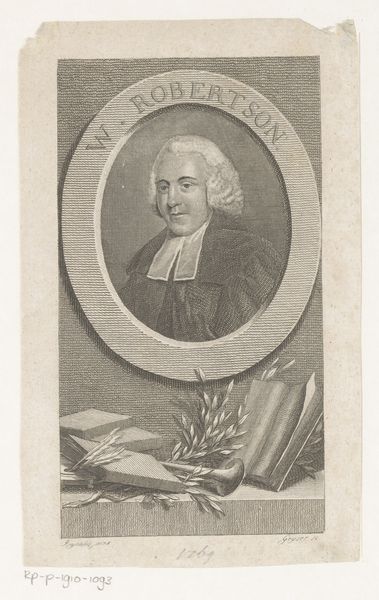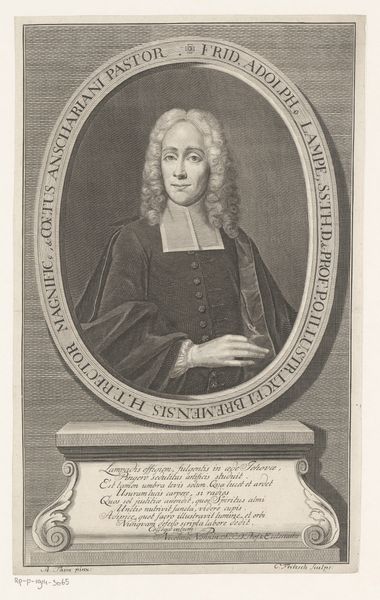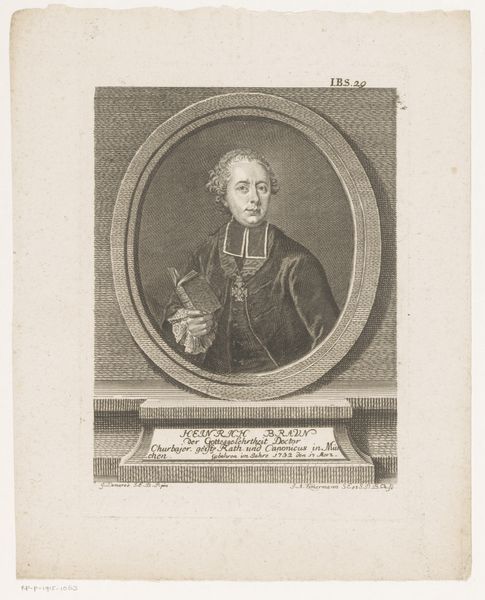
Dimensions: height 171 mm, width 106 mm
Copyright: Rijks Museum: Open Domain
This is a portrait of Ferdinand Ambros Fidler, made by Johann Christian Gottfried Fritzsch, presumably around the late 1700s. It’s a print, meaning that the image was incised on a metal plate, inked, and then transferred to paper. Look closely, and you’ll see that the image is composed of thousands of tiny lines. The depth and density of these lines create the tonal range of the portrait, from the bright highlights on Fidler's face to the deep shadows of his coat. It's painstaking work. Engraving like this requires tremendous skill, and in the 18th century, that skill was embedded in a tightly controlled workshop system. Prints like this one were not unique objects, but rather existed in multiples, allowing for the wide circulation of images. Here, that reproductive capacity is tied to the emergence of a public sphere, where likenesses of prominent people were consumed as a form of social currency. What seems like a simple portrait is actually a complex intersection of labor, technology, and social life. It reminds us that even the most seemingly straightforward image is the product of a larger world.
Comments
No comments
Be the first to comment and join the conversation on the ultimate creative platform.
